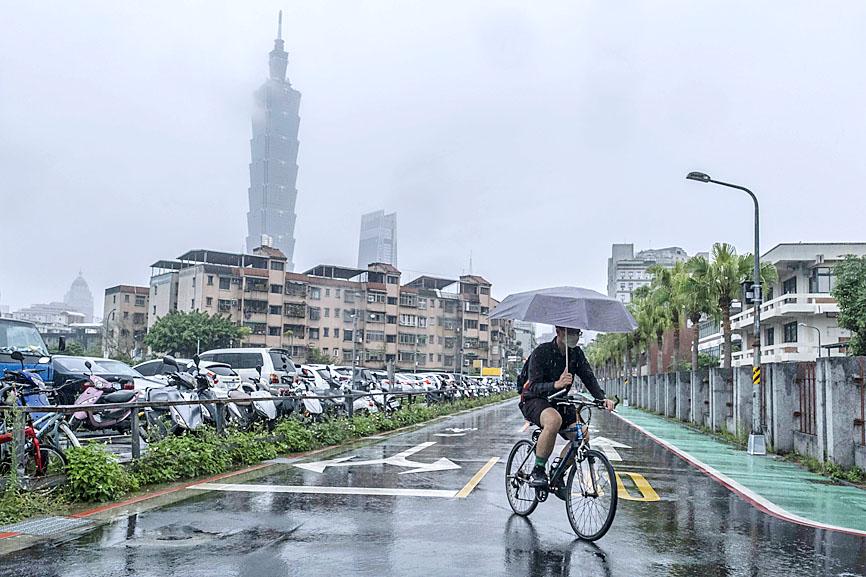Taipei this year fell from 33rd to 53rd in the “world’s most livable cities” ranking, an annual report published on Wednesday by The Economist said.
With the tagline “Life is getting back to normal, if not quite everywhere,” the report included 33 more cities in its annual “most livable cities” list this year for a total of 172 locations.
The Economist also included Taichung in the rankings, with a score of 80 to 90, similar to that of Taipei, but without indicating the city’s ranking.

Photo: Bloomberg
The Economist Intelligence Unit said that the Vienna replaced Auckland as the world’s most livable city, giving it back the title it held in 2018 and 2019.
In naming Vienna as an appealing city to live in, the unit and its survey noted the availability of entertainment venues as the local COVID-19 situation eases, well-rounded and stable infrastructure, and commendable healthcare.
The unit attributed Auckland’s drop to 34th this year to New Zealand’s COVID-19 response measures and the effects of the pandemic there.
Europe took six of the top 10 spots, with Copenhagen placing second in the rankings, followed by Zurich in third and Geneva, Switzerland, in sixth.
Frankfurt, Germany, took the seventh spot, while Amsterdam was ninth.
In North America, Calgary, Canada, shared the third spot with Zurich, while Vancouver took fifth and Toronto the eighth spot.
Osaka, Japan, and Melbourne shared the 10th spot.

NEW IDENTITY: Known for its software, India has expanded into hardware, with its semiconductor industry growing from US$38bn in 2023 to US$45bn to US$50bn India on Saturday inaugurated its first semiconductor assembly and test facility, a milestone in the government’s push to reduce dependence on foreign chipmakers and stake a claim in a sector dominated by China. Indian Prime Minister Narendra Modi opened US firm Micron Technology Inc’s semiconductor assembly, test and packaging unit in his home state of Gujarat, hailing the “dawn of a new era” for India’s technology ambitions. “When young Indians look back in the future, they will see this decade as the turning point in our tech future,” Modi told the event, which was broadcast on his YouTube channel. The plant would convert

‘SEISMIC SHIFT’: The researcher forecast there would be about 1.1 billion mobile shipments this year, down from 1.26 billion the prior year and erasing years of gains The global smartphone market is expected to contract 12.9 percent this year due to the unprecedented memorychip shortage, marking “a crisis like no other,” researcher International Data Corp (IDC) said. The new forecast, a dramatic revision down from earlier estimates, gives the latest accounting of the ongoing memory crunch that is affecting every corner of the electronics industry. The demand for advanced memory to power artificial intelligence (AI) tasks has drained global supply until well into next year and jeopardizes the business model of many smartphone makers. IDC forecast about 1.1 billion mobile shipments this year, down from 1.26 billion the prior

People stand in a Pokemon store in Tokyo on Thursday. One of the world highest-grossing franchises is celebrated its 30th anniversary yesterday.

Zimbabwe’s ban on raw lithium exports is forcing Chinese miners to rethink their strategy, speeding up plans to process the metal locally instead of shipping it to China’s vast rechargeable battery industry. The country is Africa’s largest lithium producer and has one of the world’s largest reserves, according to the US Geological Survey (USGS). Zimbabwe already banned the export of lithium ore in 2022 and last year announced it would halt exports of lithium concentrates from January next year. However, on Wednesday it imposed the ban with immediate effect, leaving unclear what the lithium mining sector would do in the